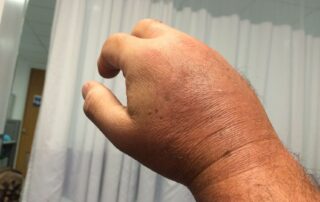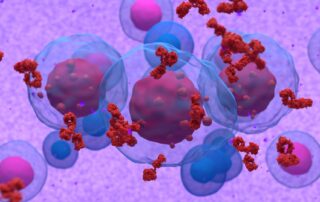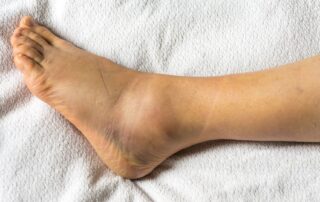Pelvic Floor Physiotherapy for Endometriosis Treatment
Surgical excision is considered the gold standard of care for the treatment of endometriosis. Yet, this approach does not guarantee resolution of symptoms and reoccurrence is common.[i] Non-invasive approaches such as pelvic floor physiotherapy for endometriosis treatment can be extremely valuable to help manage symptoms such as pain, which is often a distinguishing factor of the disease. Recently, there has been a call for better care in Canada for those experiencing endometriosis. EndoAct Canada advocates for a collaborative approach to care, recognizing the impact this disease has on both physical and mental well being. “In their lifetime, approximately 1 [...]
CRPS Treatment
Complex regional pain syndrome (CRPS) causes severe pain and swelling in the extremities that can result in the loss of function. CRPS can occur at any age, although it is most prevalent in individuals between the ages of 50 and 70 years, occurring in women more than men.[i] While there is greater awareness and research into this neurological condition, causes as well as CRPS treatment remain inconclusive. In this article we look at symptoms and classification of CRPS. In addition, we will discuss how it is diagnosed, risk factors in developing CRPS as well as treatment approaches, including medical [...]
Physiotherapy in Multiple Myeloma Treatment
Multiple myeloma treatment approach depends on the stage of the disease as well as the patient’s overall health. Advances in treatment and early detection have led to those impacted by multiple myeloma to live longer with improved quality of life. In fact, the disease has had one of the largest increases in survival rates compared to other cancers since the early 1990s.[i]It is estimated that 4000 individuals were diagnosed with this type of blood cancer in 2022 in Canada alone. In this article, we will look at how multiple myeloma affects the body, types of treatment and their physical side effects, [...]
Common Office Injuries: Causes, Rehabilitation and Prevention
Many common office injuries involve musculoskeletal strains and sprains of the neck, back, hands and feet. With so many more people working from home over the past few years, the instances of people working without a proper workstation have increased dramatically. Compounded by an already low overall activity rate amongst adults, it’s no wonder we are seeing more and more office related injuries. Office injuries are typically preventable with proper guidance and work place set-up. In this blog we look at the the presentation and causes of the most common types of office injuries. In addition, we will discuss [...]
Carpal Tunnel Symptoms, Causes and Treatment
Are you experiencing persistent tingling and numbness into your fingers or radiating into your forearm? These are classic carpal tunnel symptoms. They begin gradually but can become persistent and more painful over time. Although there is no single known cause, there are contributing factors like repetitive use of the hands and family history. The good news is carpal tunnel can be treated using conservative methods like splinting, bracing, medication and physiotherapy, or surgical methods. In this article we will explore more on carpal tunnel symptoms, causes and treatment. Table of Contents What is carpal tunnel syndrome? Carpal tunnel symptoms [...]
Ankle Sprain Physiotherapy
Ankle sprains are one of the most common types of musculoskeletal injuries. Evidence suggests almost 80 percent of individuals will suffer an ankle sprain at some point in their lifetime.[i] The good news is ankle sprain physiotherapy is an effective treatment in most cases. While many sprains often happen during sports, there are many that can occur with day-to-day activities as well. It can occur from stepping off a curb, slipping on ice or tripping over a rock while walking or running. The ankle joint is important in providing stability and mobility during standing, walking, and running. Proper management of [...]






